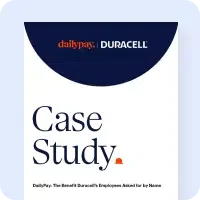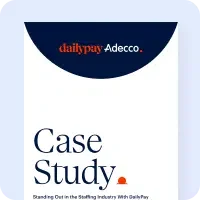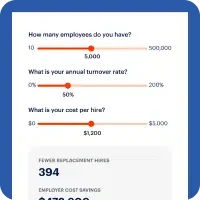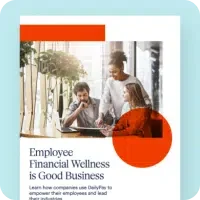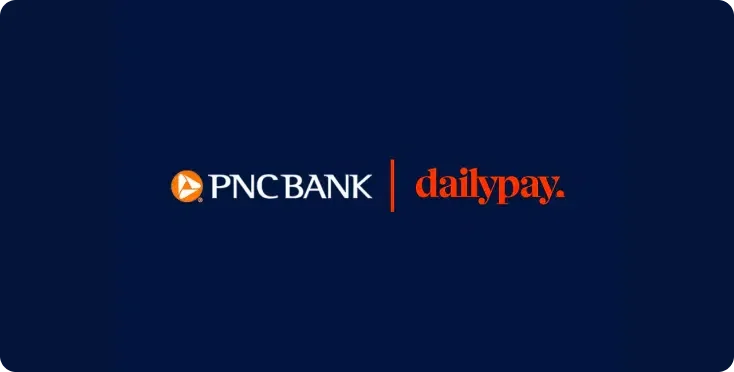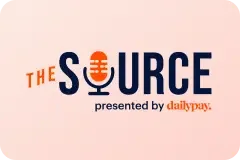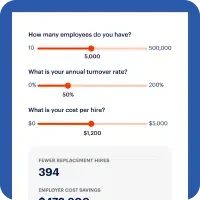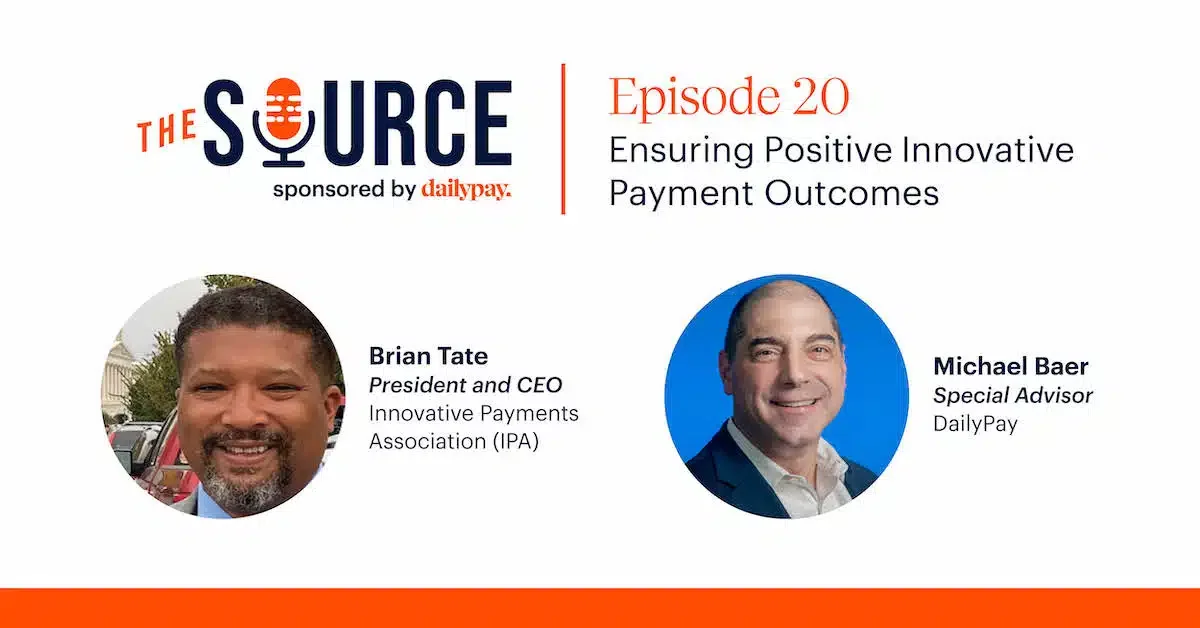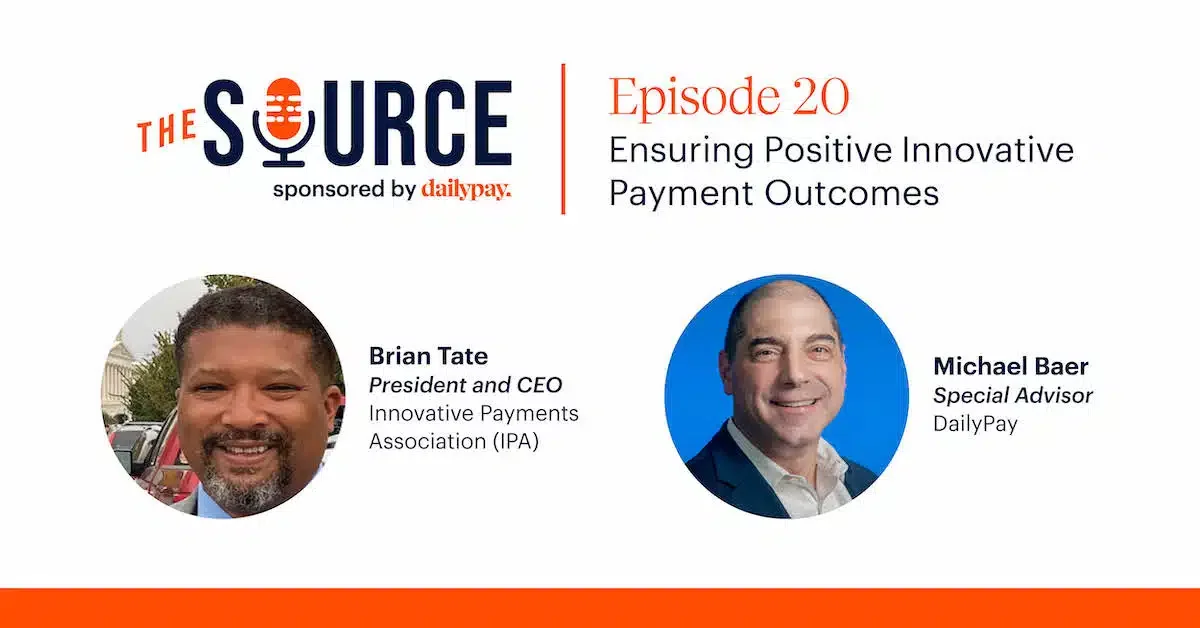In the past 15 years, the evolution of payments and the technology behind these transactions has transformed not just how we do business, but how we live our day-to-day lives. Hear Brian Tate, the CEO of the Innovative Payments Association, as he shares his unique perspective on how new payment applications have a history of being both disruptive and a force for good, the regulatory issues surrounding these advancements, and the efforts to break down barriers in development.
About Our Speakers
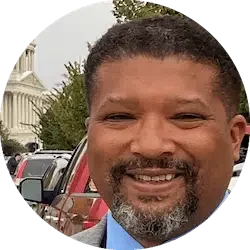
Brian Tate serves as President and CEO of the Innovative Payments Association. Over the last 15 years Brian has been directly involved in some of the most notable financial services related issues, including the Dodd-Frank Act, the Durbin Amendment, and the Small Business Jobs Act.
In 2018, he expanded the association’s scope to include financial technology products and other emerging payment forms, all while assimilating the Network Branded Prepaid Card Association into what is now the IPA.
As the association’s lead advocate, spokesperson, and legal officer, Brian has urged the Consumer Financial Protection Bureau to amend its Prepaid Account regulations, encouraged the FDIC to revisit and amend its brokered regulations, and advocated generally for the increased use of electronic payments as an efficient and effective means of consumer banking. Brian also is a co-chair of the IRS’s Security Summit’s Financial Services Working Group.

Michael Baer is the host and executive producer of The Source podcast. Michael previously oversaw domestic and international payroll news and analysis at Bloomberg Tax, previously BNA.
In a career spanning three decades, Michael transformed the role of managing editor, becoming an information services leader who managed every aspect of world-class global products and platforms. He directed a team of editors and writers who were charged with translating complicated tax and labor laws into English so non-lawyers could easily understand and apply them, and was integral in organizing and placing that content on easy-to-access web platforms, resulting in the highest net promoter scores the company had seen for any of their offerings.
Michael has been a frequent public speaker for conferences and webinars, and now is the host of The Source, sponsored by DailyPay.
In this podcast you will learn about…
- How the Innovative Payments Association works to advocate for new payment transaction mechanisms and processes
- The biggest issues with bringing to market new, innovative payment technology tools
- Using technology to allow people to manage their money much more effectively
Welcome to The Source, the definitive destination for timely and informative regulatory updates and issues in the on-demand pay industry.
The Source is brought to you by DailyPay, the industry-leading technology platform that’s creating the world’s next financial system by rewriting the invisible rules of money.
This material is for general information only, and the views expressed herein reflect only the views of the participants. This program should be considered marketing material and should not be relied on as legal, tax, accounting, or regulatory advice.
And now let’s welcome the host of The Source, Michael Baer.
Michael Baer:
Hello, everyone, and welcome to The Source. The Source is sponsored by DailyPay, and it provides insights into active and upcoming developments impacting the on-demand pay industry, HR, payroll, and financial technology. With special guests, we help clarify issues surrounding access to pay and the pay experience.
Michael Baer:
Our guest today is president and CEO of the Innovative Payments Association, Brian Tate. Over the last 15 years, Brian has been directly involved in some of the most notable financial services-related issues including the Dodd-Frank Act, the Durbin amendment, and the Small Business Jobs Act. In 2018, he expanded the association’s scope to include fintech products and other emerging payment forms all while assimilating the Network Branded Prepaid Card Association into what is now the IPA.
Michael Baer:
Brian is a strong advocate for the increased use of electronic payments as an efficient and effective means of consumer banking. Welcome, Brian.
Brian Tate:
Good afternoon. Thank you for having me, Michael.
Michael Baer:
I guess first question is tell me about the Innovative Payments Association, or IPA. Folks, when we say IPA, we are not referring to a style of [inaudible 00:02:12]. This is the Innovative Payments Association. What is your purpose, and who do you represent?
Brian Tate:
First of all, an IPA would be great right now, but it is the first thing that people think of when they think of IPA, but we’re the Innovative Payments Association. Honestly, our name kind of belies who we are. We’ve been around for a long time. And we used to be another group, as you mentioned, the NBPCA, and I’m proud of that fact, but times change, and so have we.
Brian Tate:
We are a trade association that represents and advocates on behalf of our members to Congress and regulators. We are big believers and supporters of electronic payments. We think that they’re empowering, and we think, especially through a time like we’re all living through right now, the pandemic, that they have been empowering in helping people through very difficult times, and we’re proud of that fact. And while there are some bumps in the road, I think the industry overall has done a wonderful job. And I think it’s on top of, or it’s incumbent upon the industry, I should say, to make sure that we share our story, what we’re doing, and educate our users and regulators about the great products that our members provide.
Michael Baer:
Well, that’s fantastic. And a little bit more personal now, how did your career trajectory lead you to this innovative fintech world? Were you always involved in financial services, or the technology world, or a little bit of both?
Brian Tate:
A little bit of both, but like most things, life is tricky and funny and there’s some winding roads. And if you had asked me 20 years ago would I be doing this, I would’ve laughed at you, but somehow things work out. So I ended up starting in financial services after I graduated from law school in 2004. I kind of bumped around for about a year, not knowing exactly what I wanted to do. And then I ended up working for a trade association in the state of Maryland called the Maryland & DC Credit Union Association.
Brian Tate:
There, it was a wonderful experience. It was almost kind of like a family experience. And I loved my credit union members. We had big credit unions and we had small mom-and-pop ones, church ones. It was a very good experience and, honestly, a very good way to get into financial services. Since credit unions don’t do everything that banks do, they kind of do some things really, really well, but behind the scenes, just learning about these products and how people are using them and just the basic functions of them, what is Reg E? Why does it matter what my interest rate is for my car loan and my credit card? And I thought it was a great way to kind of learn the industry, learn the players, and how they interact with each other.
Brian Tate:
After that, I ended up at the national association, the Credit Union National Association, CUNA, which all the state leagues belong to. And I did state government relations for them for about a year, year-and-a-half. And then went back, funny enough, just because life’s interesting, back to the Maryland & DC Credit Union Association, where kind of had a little bit more of an expanded role, but it was probably a place where I could have a pit stop, regroup, and shortly after that, maybe a year after that, I ended up going to a group called the Financial Services Roundtable. And there were a lot of large institutions in the banking world, insurance securities, and it was the missed… Right in the middle of the crisis, and Dodd-Frank was coming out and emerging, and it was a great opportunity. It was almost like getting a PhD in banking, because there were new issues every day, some sector of the banking world needed to be looked at, reviewed, updated.
Brian Tate:
You just got so many topics thrown at you that you were forced to learn all of these things, or at least think quickly or conceptually about how all these things interact and work for people. The tricky thing is, during kind of towards the end of my tenure at the Roundtable, I ended up doing a comment letter on prepaid cards. And at the time knowing so little about payments or prepaid cards, I Googled Prepaid Card Association, and what popped up? NBPCA.
Michael Baer:
Wow.
Brian Tate:
I reached out to, at the time the general counsel was a man Terry Maher, wonderful person. Terry encouraged me to write a very thorough letter we coordinated. And then shortly after the comments were filed, he encouraged me to apply for a position at NBPCA. And if you ever met Terry, he’s about six-seven, gregarious, everyone loved him. He was a really, really smart guy, and introduced me to my current boss, our chairman, Bob [inaudible 00:07:29], and it’s been all downhill after that.
Michael Baer:
All downhill. The rest is history, as they say.
Brian Tate:
Yes, sir.
Michael Baer:
You brought up something in your description of the areas that you focus on. You said Reg E. I believe that’s what you said earlier, and it might be good for our audience to maybe understand a little bit what Reg E is, and also maybe Reg Z, for that matter. Why don’t you go into that, if that’s okay?
Brian Tate:
Let’s see if I can put it in English.
Michael Baer:
Just a CliffsNotes version, maybe.
Brian Tate:
That’s the best way I know how to do it, which is Reg E is typically the rule or the regulation that governs consumer transactions. If you run a credit card or run a debit card transaction, there are protections there built into Reg E. If you need to return something, Reg E kind of governs. If there’s some fraud or any kind of dispute, Reg E lays out a process for that to resolve itself and their timelines in different instances. If your credit card’s lost, you have to report it within a certain timeframe. If you do it within, let’s say, 48 hours, I don’t have it in front of me, it shifts the burden in terms of liability, but it’s there to protect a consumer.
Brian Tate:
Reg Z’s very similar, except it’s for credit cards. Both work together, again, to protect the consumers. And I think they’re kind of part of the culture now, if you’re in the payments industry, to know a little bit about each one. I think they’re good outlines for how consumer protections work. They’re not perfect, but it does put a framework in place that, A, allows the industry to provide products in a safe, in a kind of in innovative way, if you can think on a higher level, and also at the same time give robust consumer protections where both sides are protected here. The goal should always be to protect a consumer and be thoughtful in how we as an industry provide our products to them.
Michael Baer:
Thank you for explaining that. Because I know there’s a lot of people that understand that, but maybe I just wanted to be sure, and that’s a great breakdown, I thought, so thanks again. So now kind of more substantive, well, I don’t know how much more substantive we can get talking about Regulation E, but you get a chance to see a spectrum of new payment tools as they start to be adopted. In your observation, what are some of the key challenges to bringing those innovations to market? What do they have to overcome?
Brian Tate:
I think one of the most wonderful things about working in this industry is that you run into some really, really smart people. As I said, people who can think on a higher level, I can’t, I admire those who can. I think it’s almost like watching a movie, it’s just surreal to see somebody think through all these possibilities and endless potential outcomes. And I think there’s some extraordinarily smart people, creative people, talented people, who are developing products every day in a way that we couldn’t even think about 5 years ago or 10 years ago, definitely. If you said 15 years ago we’d all be banking on our iPhones, our Samsung phone, who would’ve believed you? Or at least not in the way where we do today, and almost in a way that replaces your check, your traditional checking account, in most cases, and soon probably your credit cards and other payment tools.
Brian Tate:
I think one of the barriers that is out there, is the people who are developing these products are thinking so quickly and so rapidly and bridging kind of legacy products to new products is that, and this is not their role, but they need to try to integrate this into their thinking, is regulation and compliance. I think it may not be a natural place for them, because if you’re a dreamer or kind of a high-level thinker, you’re thinking about how do I help the end user, the consumer? How do I get this product to market quickly? But sometimes you do have to do some blocking and tackling. And I think sometimes when I talk to companies who have great ideas or have something new, I don’t want to be a Debbie Downer here, but I try to remind them that, is it compliant to Reg E? Is it compliant to Reg Z?
Brian Tate:
Are you aware of this rule over here, the prepaid account rule? I often remind people it’s not the prepaid card rule, it’s the prepaid account rule, and that covers P2P wallets and cards. Are you familiar with FinCEN and fraud and AML and KYC?
Michael Baer:
Know your customer.
Brian Tate:
I’m sorry, yes. Know Your Customer. I’m sorry. Bank Secrecy Act. I don’t mention these things to slow them down, I mention them because I want them to be successful. I want them to integrate these thoughts and ideas and regulations into their product that they’re developing. So I think that’s one. Two, the funny thing is, these kids, and I call them kids sometimes, because I just literally talked to a company last week where the CEO was 21. It’s amazing.
Brian Tate:
At 21, I couldn’t tell you my left hand from my right hand. You see these kids, and you want to make sure that they surround themselves with really smart people, whether it’s consultants or lawyers or experienced people, is probably the better word, to make sure that they have a full grasp of what they’re entering into, or people can tell them here’s what I went through, here’s my experience, here’s the landmine to avoid.
Brian Tate:
I think getting quality people around the group or persons, or people who are really, really smart and develop these products is not to insulate themselves, is to talk to experts, talk to people who’ve been there. I think that is a barrier. And then I think cost. It’s expensive to bring a product to market and do it the right way. I know everyone wants to rush, but I think crossing your t’s and dotting your i’s is probably the more safest, more successful route than to just rush out there and put a product out, and to tie all this together, I think know who your audience is, know the market you’re getting into, know who your audience, who are you trying to sell to. And are you actually selling to that group, even though that you’re intending to reach one group, are you actually reaching another group?
Michael Baer:
That can be hard to predict, too, I’m sure.
Brian Tate:
Yes. If you have kids, they shift ideas daily, if not on an hourly basis, so that is a very tough thing. I think those are probably the biggest hurdles. I’m sure there’s some more out there, but those are the ones that come to mind.
Michael Baer:
That’s certainly a lot for folks to think about as they move forward, instead of having this rush to market without thinking things properly through. That’s great advice there. Another kind of interesting question, I think, is there’s always seems to be this pushback once… And people like to call them disruptive, innovative payment technology is introduced and begins getting traction. For example, like DailyPay’s on-demand pay, also known as earned wage access. And before that, payroll cards, for example. What do you think brings this on? Is there some bias to the status quo, which is kind of a natural thing, I think, and then also maybe some win/lose kind of thing, where some parties might lose out as the change occurs, or is it more of a reflex action against maybe positive change and people don’t realize that it’s really positive change. What do you think?
Brian Tate:
I think it’s a little bit of from Column A and Column B and probably Column C, miscellaneous out there, but just think about it. I think change is inevitable. We’ve all gone through change, especially a technological change, in the last 20 years. But if you think about it 20 years ago, it was don’t talk to strangers, don’t get into cars of people you don’t know, don’t put your picture online, don’t give up your personal credit card information online. Now we hop into cars now, Uber and Lyft and anything else that is similar, we’re all on social media in one way or another, and the vast majority of us buy things online. I just think with change, people have to go, whoa, whoa, whoa, slow down. What’s going on here? And I need to understand this first, but I think also there are certain events that trigger change to speed up faster than it probably would’ve happened on its own.
Brian Tate:
The pandemic’s one of those. I think the crisis in ’08 changed a lot of financial, personal financial behavior. And I think industries, and, again, smart people and innovators have found their role, their niche, and kind of, not exploited it, but tried to fill a role that wasn’t being served by another institution or company at the time. So I think everything’s an evolution here. I think the product that EWA provides is a wonderful product. And I think over time as people, more and more people use it, I personally believe that over time, it will probably be just part of your benefit package. If you are working for a company that provides access to it, I think just like healthcare or life insurance or days off for vacation, I think over time, it’s going to be something that people think about when I take a job.
Brian Tate:
If an unfortunate event happens, am I going to be able to access the wages I’ve already earned? And if Company A doesn’t provide it and Company B does, that might be a factor in decision making where I end up working. I just think there’s a ton of possibilities.
Michael Baer:
It appears to already be a factor in some sectors of the economy, for sure.
Brian Tate:
Yes, and research out there. I’ve read reports from Mercader, KPMG, the Financial Health Network. You’re looking at income stability in many cases, you’re looking at people taking more control over their financial lives and providing more stability, or working more hours, or volunteering to take on more hours because they know if they need to do so, they can have access to those wages they’ve already earned. I’m not in a position to be as creative as the people who are developing these products, but as a lay person or an outsider looking at it, I think it’s a wonderful thing.
Michael Baer:
Okay. Then kind of turning to the current economic situation, and we touched on this a little bit, we have this employment, this employment issue, this inability of employers to fully staff up, let’s put it that way, in a lot of areas. There’s inflation, there’s these other concerns, yet payments technology keeps galloping forward. It’s kind of like, regardless of all these external factors, these tools seem so resilient through this period of uncertainty. Why do you think this is so?
Brian Tate:
We’re all going through a difficult, difficult time, unprecedented for us who are living today in terms of the pandemic. We’ve never really experienced anything like this, but you’re right. And I think one of the, I guess, positives, if you can call it that in the middle of a pandemic, is that the infrastructure that the industry has invested heavily in over the last 15, 20, 30 years, has held up. I think because of the care, and this is not just one company, it’s the industry, the networks, the providers, it’s everyone that has made these investments in these services, have done a tremendous job, and I don’t think it’s something that’s discussed a lot. It’s you guys weren’t a hundred percent perfect, so we’re going to say something over here, but the true underlying story is that the industry has done a wonderful job, companies have remained compliant during this very difficult time, and this transition from working in an office to working remotely, we all had to go through this uncomfortable period of how do we coordinate and do so very, very, very quickly and still make the trains run on time.
Brian Tate:
I just think that’s it’s almost a shout-out to the professionals in this industry. There are some really classy people in here. There are some really dedicated people, really smart people. So I just think it’s a, not even the EWA, fintech, I think it’s the banking industry overall. And this is also because, and I’m going to say this, is that our members have put in the time invested, hired expertise, brought in people with experience, people who are understanding regulation but at the same time can innovate and be cutting edge. I just think it’s kind of a group effort.
Brian Tate:
So when I read headlines, or there’s going to be bumps in the road here and there because we are in the middle of a pandemic, and we’re all kind of doing this on a day-to-day basis, but I think overall, we deserve, we don’t need the praise, but we need an acknowledgement that it’s a team effort all the way around here, and I just think it’s been a wonderful job in delivering COVID-related payments on the federal/state level, minimizing fraud to the extent possible during this time when we all know we’re shopping online. I just think it’s something that we really should be proud of and we should share that story.
Michael Baer:
Then just to highlight something you touched on, was that millennials and the new generation, they kind of led the way to adoption. And then when the pandemic hit, people had to adopt certain types of, say, paperless pay and things like that, because of the fear of contracting COVID. That’s really interesting. On the regulatory side, and switching here, what do policymakers need to know about innovative payment processes and technologies in order to effectively safeguard consumers, at the same time ensure growth and flexible payment options, being supporters of innovation, but at the same time want to safeguard consumers? What do policy makers need to know?
Brian Tate:
As a starting point, I think they need to know we care about the consumer just as much as they do. Although we might have different approaches, I think there’s a vast middle ground that sometimes isn’t always explored by both sides. And I think one of our goals at the IPA is to try to bridge that gap. And I think it’s difficult to do, because we come with our different experience, different perspective, and different roles. But I think one of the things that needs to be done is that the regulators should learn more about the industry, and the industry should make engage regulators.
Brian Tate:
I strongly believe when there’s a new product out on the market, it’s on the industry to explain how that product works, what’s the benefit to the consumer, and how we’re protecting consumer at the same time. I think if you do those three things, I think that’s a very good starting point for figuring out a way to create an environment where you can still innovate and create an environment where they make sure that there’s basic protections, and I use again, Reg E or Reg Z as a starting point for a conversation to make sure that there are some protections there in case you return your sweater, and how does that work? Or if someone steals your credentials or card, to make sure that the consumer is protected. I think we can all agree on that.
Brian Tate:
But I think a lot of times we allow misinformation, or you’ll talk to a researcher or a reporter who’s still learning about this, but then all of a sudden develops an opinion about the product without really delving into it. Or it’s new. Again, we’re back to, I got to learn what this thing is and so need to pump the brakes and freeze everything. And that might not always be the best solution. I think EWA has taken off because it fills a role in the market, and consumers kind of drive the way here, and kids are at the forefront of that. I have kids, and they will jump from app to app, not just banking apps or financial services apps, but social media apps where their friends are, or somebody had an article about something, so I’m going to keep using that website. Or I think they are the ones who are willing to try things. And as we mentioned before, have lived in this environment where they don’t…
Brian Tate:
They’ve never lived in an environment where they walked into a bank and waited in line and had to talk to a teller. I’ve never taken my kids to a bank in that way. Or they’ve never lived in a world where you didn’t use/have Uber, didn’t post your picture online, or didn’t buy something online. So I think if you look at all the research that’s out there, it’s almost, if you could draw lines arbitrarily, it’d be 30 and under operate differently from 30 to 45, or 30 to 50. And then, 55 to 70, if you’re in my mother’s range. She still likes to write checks.
Brian Tate:
I just think innovation occurs and happens, and something like the pandemic may speed that up a little bit, but I think over time as millennials get older and their children come along, they’re going to be doing things that they couldn’t think about, and I think we’re going to be in a different place 20 years from now in how we interact, how we bank, how money moves across not only inside our country, but outside the country. We’re definitely working in different ways right now. So I think payments plays a part of that process. If I don’t have to go into work to get my check and I can get my check electronically forwarded to me or sent to me, I don’t have to spend time getting on the bus and going to work and then getting back on the bus to come back, or go to the bank and then come home.
Brian Tate:
I think we’re going to move in more efficient ways, which will create other issues that we can’t foresee. But I think it’s all to the benefit of the consumer in terms of improving people’s lives. I think technology has allowed people to manage their money in ways that they couldn’t 10 years ago or 15 years ago. It was the payments industry that came up with real-time notifications, whether through text or some other form, or real-time, hey, you only have 10 bucks left in your account, or you just paid 7-Eleven to buy a Coke. It was the payments industry that came up with those notifications, because consumers almost demanded it. If they didn’t say it out loud, they said it implicitly. And I think those innovations are being adopted on a more wider basis. Again, I just think this industry, like many others, but I think this industry really has some really, really sharp people.
Michael Baer:
I support all that, of course, being in the industry. And I think, you have to deal in your role with governments. You do a lot of work with state governments, federal regulators, what takes up most of your time in your role as CEO and president of the Innovative Payments Association?
Brian Tate:
That’s an interesting question, because I think it’s what’s going on at any given moment. Obviously, something at the federal level has the potential to have more impact on the industry than a state issued, but you’d be surprised from time to time where state issues really do pop up in a strange way, work in a reverse way, where something will bubble up in a state which demands attention from the feds. And so, which means the industry needs to pay attention at whatever given state this is happening in. It really tends to be the feds or at the federal level, but that could change on a dime if, for instance, something like there was a lawsuit this year that started last year with some of this state regulators challenging a federal charter. Well, they went to federal court, I mean state court, in the State of New York.
Brian Tate:
Some of those regulators wanted to challenge the ability of the OCC to provide charters to certain new institutions, and that all kind of bubbled up because state regulators wanted to make sure that they retain their authority over their jurisdiction to police some of these providers or companies. And so there’s always that tension, but just because it started on a state or even a local level doesn’t mean that you can dismiss it, that a lot of small things end out turning into very big items that we all have to pay attention to. I think if you’re a money transmitter, you have to operate in 50 states and you have 50 state regulators and they’re all different. Do some have more influence than others? Yes. If you’re in California, New York, Illinois, probably two or three other states, you’re watching what takes place there, because those are almost incubators for what will eventually happen on the federal level.
Michael Baer:
It just speaks to the fact that you mentioned, there’s like 50 different entities right there just in the state at the state level that that can oversee, or that can regulate the payment process in their particular jurisdiction, and then you have the federal. So that’s quite a matrix to navigate through sometimes when you have an innovative product, for example. And then, you have one potential legislative piece being introduced in one state, but there’s a different kind of angle to it being introduced in another state, and then the fed is having hearings about things. It’s just a lot to keep up with, I know.
Brian Tate:
You beat me to the punch. I was going to say that every state has their own little tweak or different view on this. And they all have different levels of expertise, and politics being what it is. There are probably sometimes larger goals that remain unseen to the larger audience. But I think, again, California, Texas, Illinois, New York, those are key states, even Georgia with kind of transactionality there, whatever happens in those hotspots and a few other places, I think we should all take notice. It’s always amazing to me, even though there may be this large industry in their backyard, a lot of politicians or policymakers may not even be aware of it. I think if you go to Georgia, I believe 70% of the transactions in the country run through Georgia or something like that.
Brian Tate:
I would’ve assume that there’s still some politicians in Georgia. I know there are, because I’ve been told this, who weren’t aware when they ran for office or were appointed, that this large industry resided in their backyard. So it’s something to keep in mind, there’s jobs, there’s commerce, there’s kind of intersection of business and personal that’s there. It’s always interesting. It could be the smallest thing. I’ve seen in states where a state politician or a state-elected official may have misused a product or didn’t understand a product, didn’t have a good experience. And then they want to introduce legislation to get rid of it because of that one bad experience. I think, again, I will put the burden on the industry to explain our products. We have to always constantly figure out a better way to communicate our messages, and that’s on us.
Brian Tate:
We’re the ones providing the product. We’re the ones helping the consumer. We are the ones who have to complete the circle. I think there’s always a better way to thread a needle. And I think if we all work together, we can do that. But I think there is a lot of positive stories out there that we need to tell, but all of these things are balanced on a head of a pin, because we’ve seen as the pendulum swings politically, you’ve always got a rotating kind of cash to characters at certain federal-
Michael Baer:
[crosstalk 00:33:06] have to educate.
Brian Tate:
Yes. You start the process all over again.
Michael Baer:
Yeah. Very good. Last question here for you, and this has been very illuminating, by the way. You’re on the front row seat to a lot of companies just before they become broadly adopted. You already talked about EWA, for example, and how it could be easily a part of a benefits package for employers. How long? Do you think this is going to be sooner or later that most employers are saying, on-demand pay, EWA is available? Was it five years out? We’re kind of looking at it from our perspective. We are right at the cusp of going past the early adoption stage and into general acceptance. What do you think? Say five years from now. Peg it at five years from now.
Brian Tate:
I’m going to look at my crystal ball and all the tea leaves and guess here. I don’t know if it’ll be 5 years now or 10 years now or 15 years now. Because we’ve got to see how we all emerge from this pandemic. I just think we’re going to be impacted in ways we can’t think about right now, but at the same time, EWA seems to be growing very rapidly and maybe it’s because of the pandemic, maybe it would’ve grown without the pandemic, who knows? But I just see as it’s… And I don’t mean to overstate this or understate it, but I think it can change people’s lives. When I testified in Congress in early November, I talked about how I’ve been working since I was a teenager, and there were times where I didn’t have access to credit.
Brian Tate:
If somebody had told me, “Hey, you’ve got $200 there,” and I may have only needed 50 bucks, but if I didn’t have a credit card or any other kind of extension of credit or access to funds, I would’ve definitely have utilized an EWA-type product to get the money I’ve already earned. I see it no different than the natural evolution from an Uber driver gets paid at the end of the shift, a bartender who cashes out at the end of the day or a waitress. Why shouldn’t that be available to me? Or why should I be limited in my options just because I don’t have that specific job? So I think in five years, we’re definitely… There’ll be greater adoption. I think it’s going to take time for this to be included in a wide range of benefit packages, but I see us getting there, but I see also at the same time, over the next five years, there’s probably going to be new competition, new products, buy now pay later is on the lips of all of us now.
Brian Tate:
There probably will be something new five years from now that will maybe even take a little bit from Column A, EWA, or a credit card, or buy now pay later, your debit card, and come up with a new product. And that’s the great thing I like about this industry, is that there’s no sitting still. It’s all forward progress.
Michael Baer:
Wonderful. In five years, we’re just going to have you back and find out. We’ll know then.
Brian Tate:
Hopefully, it’s a lot sooner, because I’ve enjoyed this discussion. But I will definitely be back within five years.
Michael Baer:
Yeah. Well thank you, Brian Tate, for taking time out to be on The Source and sharing your perspectives on innovative payment technologies and how they can be a force for good, and for shedding some light onto the processes necessary to bring some of these applications like on-demand pay into full acceptance.
Brian Tate:
Thank you for having me. This was enjoyable. I think that all of your colleagues at DailyPay and all the companies you work with do a wonderful job.
Michael Baer:
Well, we appreciate that. Again, thanks for your time coming in talking. I enjoyed it, too, immensely. And listeners, I want to thank you for joining us today at The Source by DailyPay. For more on The Source by DailyPay, go to dailypay.com. In the resources section, look for the podcast page. We are also available on Apple, Spotify, and Google podcast platforms. So stay healthy and safe, keep an eye on your emails and social media, as we will have another compelling issue along with updates very soon. Thank you very much, and have a great day.
Speaker 1:
Thank you for attending The Source, brought to you by DailyPay, the industry leading technology platform who’s re-imagining the way money moves. Join us again next month for up-to-date insight on the on-demand pay industry. Keep an eye on your inbox for more information regarding featured guests and new topics.

